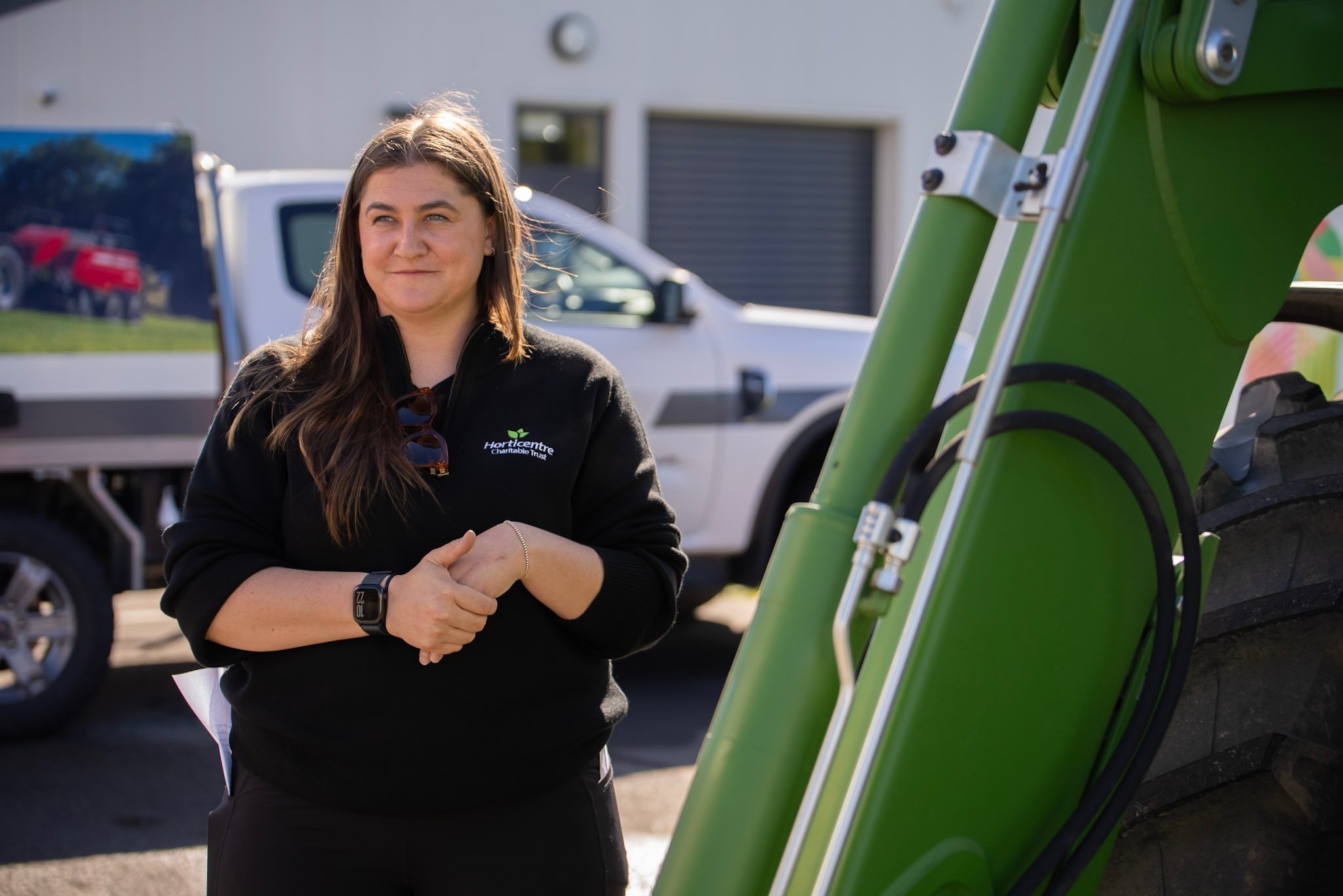
Central Otago orchardist Lydia Goodman discovered she was a New Zealand resident the same day she began representing her region at the Young Grower of the Year competition.
"I feel like I can start making some long-term plans, which is really exciting."
Miss Goodman, of Cromwell, won the outstanding leadership award at the competition in Christchurch last month.
The 26-year-old is the assistant orchard manager for Central Orchard Management, growing cherries, feijoa and greengages in Central Otago and is also packing manager, processing cherries, for CentralPac in Cromwell.
"I’m in quite a people-oriented role."
The two-day competition featured modules including one on leadership involving leading the six other competitors through a series of "hands-on" challenges, such as identifying pests and diseases on a range of woods.
Another practical module involved using GPS technology to drive a tractor, about three times the size of any tractor she drove on Central Otago orchards.
None of the tractors she drove in Central Otago featured GPS.
"Our GPS are the trees."
She had a strong focus on leadership in her day-to day work, Miss Goodman said.
A lot of the orchard work included pruning and running about 30 staff in up to three teams, across several orchards, between February and August.
"Pruning is a bit of an art. If you think you understand pruning, you’re wrong."
The pruning staff included about 16 people from Vanuatu on recognised seasonal employer visas and another dozen staff they "borrow" from an apple orchard in Timaru.
Any pruning staff shortfall was filled by New Zealanders and backpackers.
Pruning required patience, a "gut feel" and flexibility to be able to change your strategy between blocks, Miss Goodman said.
"I know people that have been pruning for 40 years and they still don’t understand it, so it’s a hard one to train."
From late August, the early morning spraying and irrigation checks began, preparing for it to get "full on" from about now to the end of January.
When the harvest began, she moved inside the packhouse, leading up to 120 staff for about eight weeks.
Staff at the peak of the season in January included up to 450 fruit pickers and two shifts operating in the packhouse each day.
More than 80% of the packhouse staff were backpackers, usually working for the business the first time, and the rest were either permanent orchard staff or New Zealanders, including high school students returning to work for the company.
She was a "third-generation farmer", raised on a beef, dairy and arable property in Devon, England, Miss Goodman said.
After backpacking in New Zealand in 2017, she returned home to England.
She missed New Zealand and got a working holiday visa and did odd jobs in Wānaka for about two years.
"I really loved the area and wasn’t quite ready to leave."
At the time, the government offered a new supplementary seasonal employer visa, in response to growers facing a staff shortage due to the impact of the pandemic.
She got a job on a new 12ha cherry orchard in Tarras and found an industry she could be passionate about.
"I fell in love and didn’t see myself doing anything else."
About three years later, she moved to her current employer because it was bigger and could provide more learning opportunities.
Now plenty of seasonal staff were applying to work for her employer as the company had a great reputation.
"I absolutely love the company that I’m working for."
The managing of different orchards was an enjoyable challenge, she said.
A dream was to one day own an orchard in Central Otago.
"It’s something that I can really see myself thriving in."
Land was expensive in Central Otago but horticulture was an efficient way to use it to create an export commodity, she said.
Now she was a resident, she had no intention of moving to Australia to grow cherries.
"No, I’m terrified of spiders — I’m quite happy here. I’ve heard rumours about snakes hiding in cherry trees as well, so that’s me out."














